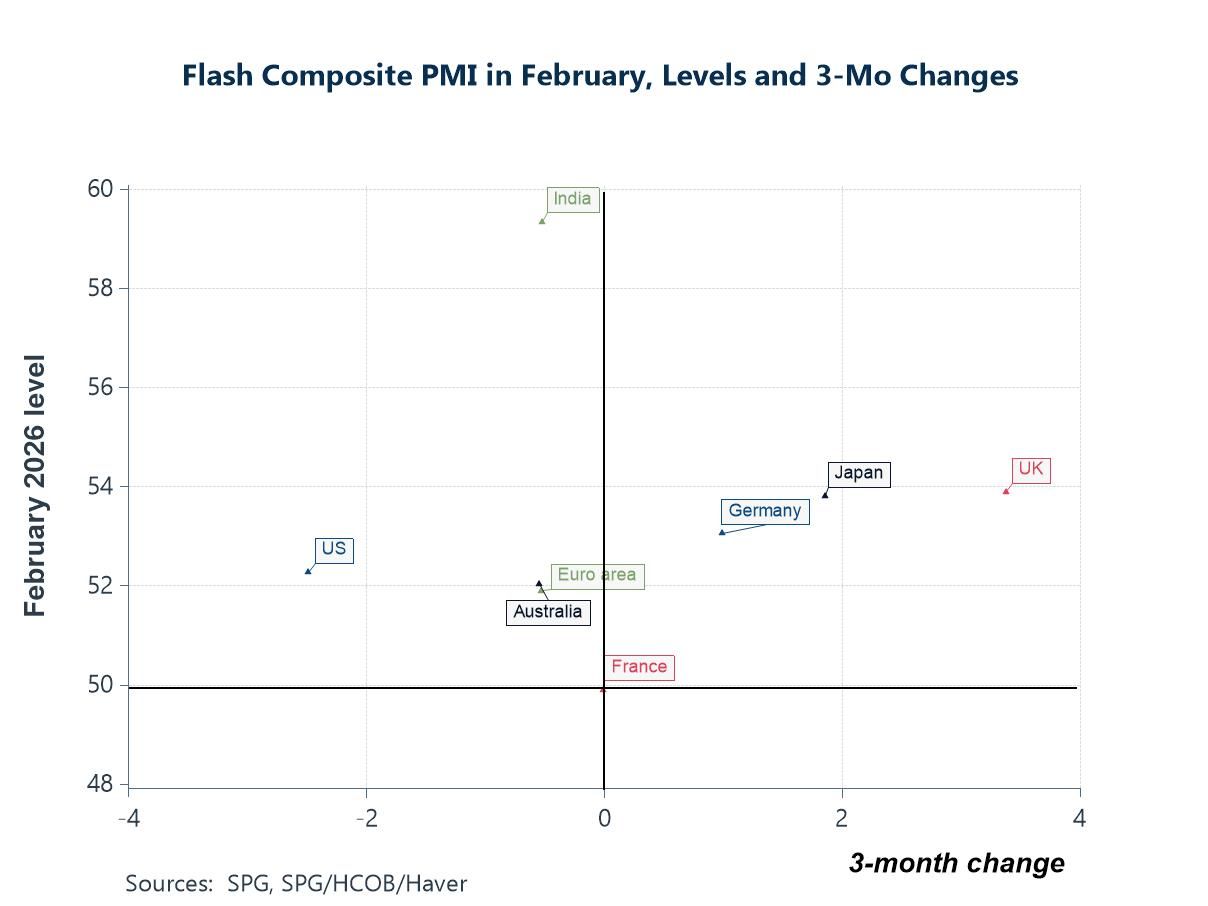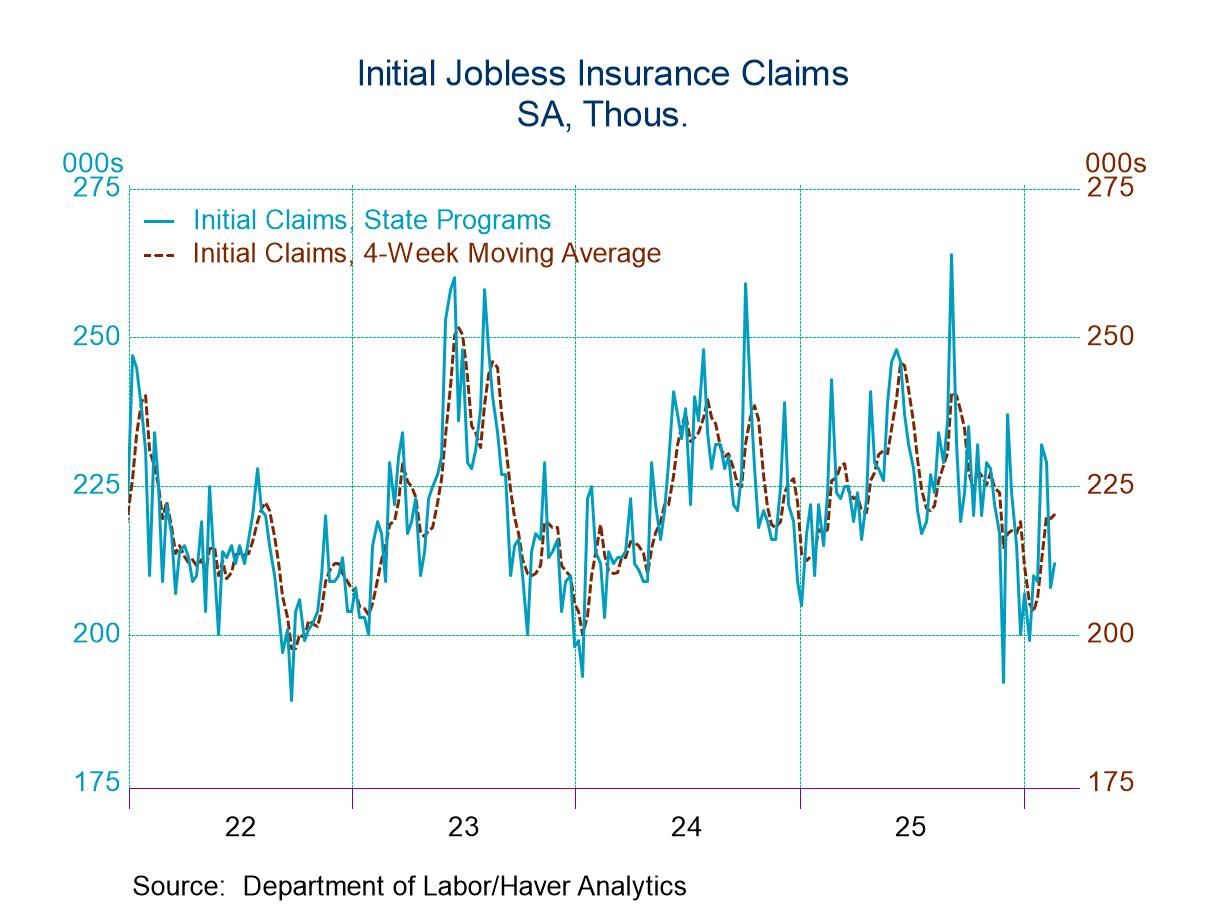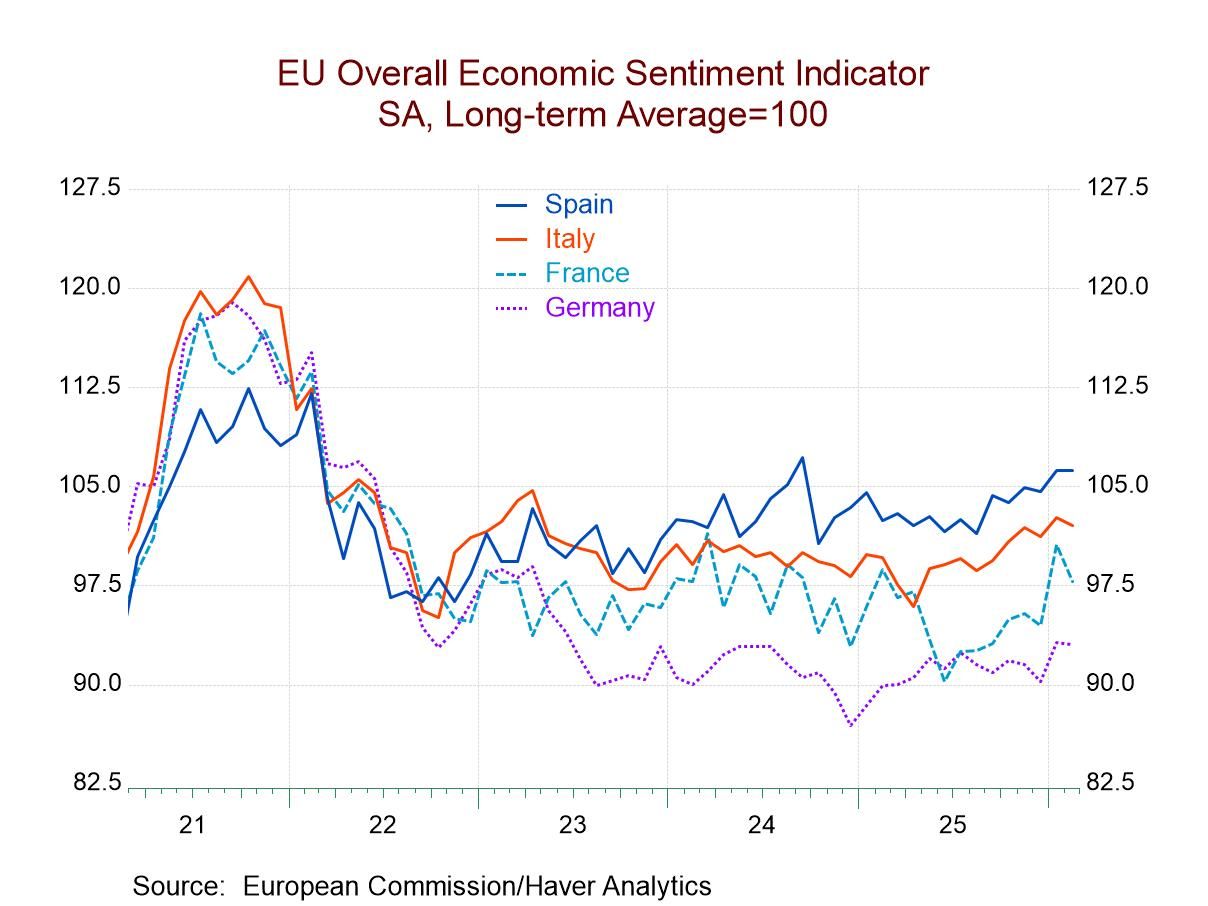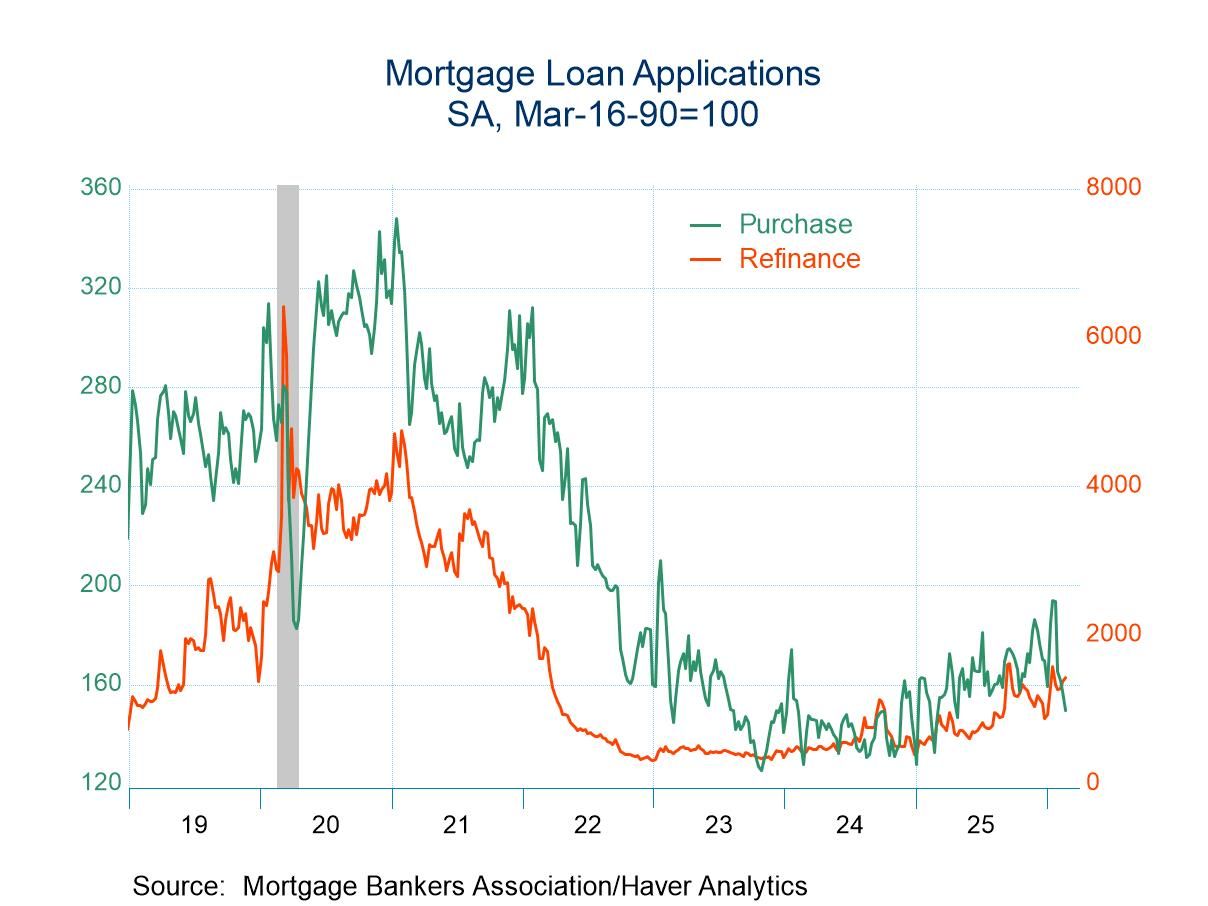 Global| Dec 22 2005
Global| Dec 22 2005Mass Layoffs Rose
by:Tom Moeller
|in:Economy in Brief
Summary
Mass layoffs rose 8.7% from October. Year to year, the number of mass layoffs fell by 13.1%. During the last ten years there has been a (negative) 87% correlation between the three month average level of layoff announcements and the [...]
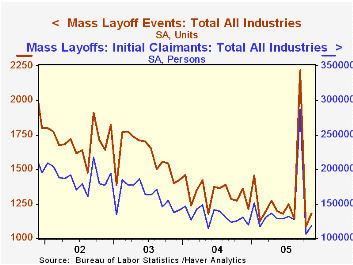
Mass layoffs rose 8.7% from October. Year to year, the number of mass layoffs fell by 13.1%.
During the last ten years there has been a (negative) 87% correlation between the three month average level of layoff announcements and the y/y change in payroll employment.
The number of persons affected by mass layoffs in November rose 11.2% m/m though the number remained below last year. By industry, the number of factory sector layoff announcements rose in November but the number of affected persons fell. In finance & insurance, the number of layoff announcements fell sharply and the number of affected persons dropped 21.1% (-9.4% y/y). In construction, the number of layoff announcements surged and generated a three fold m/m increase in the number of initial claims for unemployment insurance.
The Mass Layoff Statistics (MLS) program collects reports on mass layoff actions that result in workers being separated from their jobs. Monthly mass layoff numbers are from establishments which have at least 50 initial claims for unemployment insurance (UI) filed against them during a 5-week period.
How Predictable is Fed Policy? from St. Louis Federal Reserve Bank President William Poole can be found here.
| Mass Layoffs | Nov | Oct | Y/Y | 2004 | 2003 | 2002 |
|---|---|---|---|---|---|---|
| All US Industries (# Events, SA) | 1,183 | 1,088 | -13.1% | 15,900 | 19,155 | 20,472 |
| Total (# Persons, SA) | 118,098 | 106,238 | -9.3% | 1,588,483 | 1,936,463 | 2.256,014 |
Tom Moeller
AuthorMore in Author Profile »Prior to joining Haver Analytics in 2000, Mr. Moeller worked as the Economist at Chancellor Capital Management from 1985 to 1999. There, he developed comprehensive economic forecasts and interpreted economic data for equity and fixed income portfolio managers. Also at Chancellor, Mr. Moeller worked as an equity analyst and was responsible for researching and rating companies in the economically sensitive automobile and housing industries for investment in Chancellor’s equity portfolio. Prior to joining Chancellor, Mr. Moeller was an Economist at Citibank from 1979 to 1984. He also analyzed pricing behavior in the metals industry for the Council on Wage and Price Stability in Washington, D.C. In 1999, Mr. Moeller received the award for most accurate forecast from the Forecasters' Club of New York. From 1990 to 1992 he was President of the New York Association for Business Economists. Mr. Moeller earned an M.B.A. in Finance from Fordham University, where he graduated in 1987. He holds a Bachelor of Arts in Economics from George Washington University.



